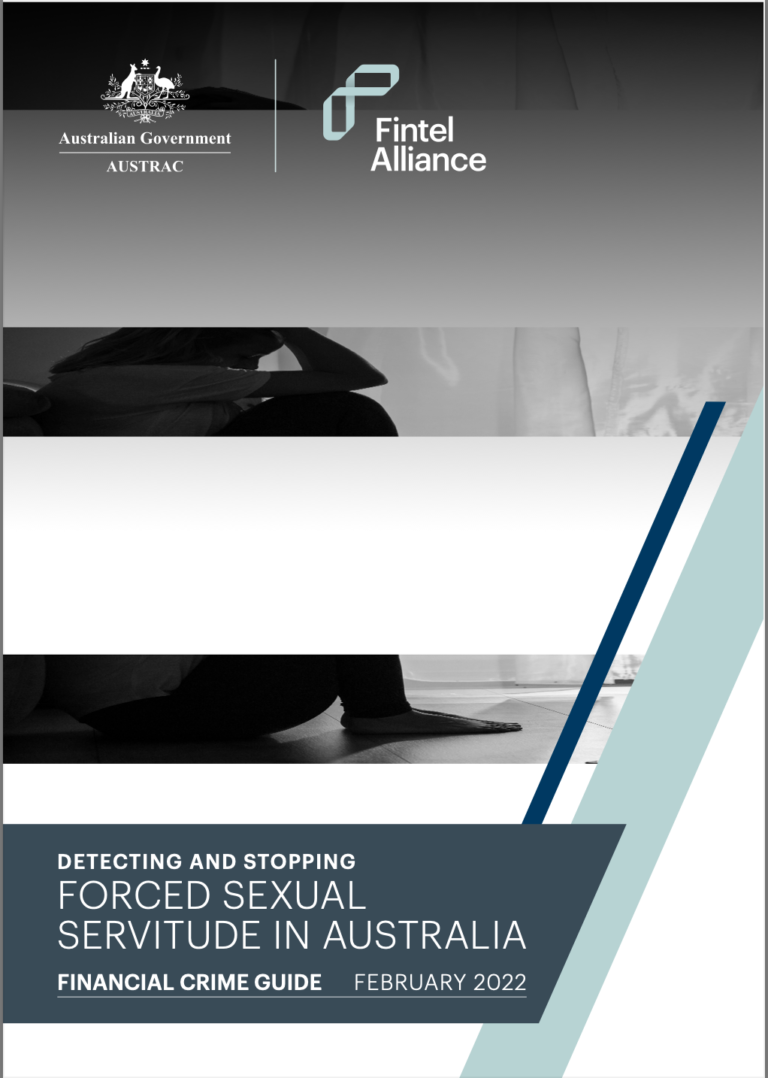The Fintel Alliance has developed this financial crime guide to help financial services businesses understand and identify the signs of forced sexual servitude in Australia. The indicators and behaviours in this financial crime guide can be used by financial services businesses to review their profiling and transaction monitoring programs, to target, identify and stop financial transactions associated with forced sexual servitude. Financial services businesses have a crucial role in protecting victims against forced sexual servitude by understanding the financial indicators of this crime type and reporting suspicious financial activity to AUSTRAC.
No single financial indicator will be a definitive way to identify if an account or business is being used by coordinators, victims or customers of forced sexual servitude. Financial services businesses should use a combination of indicators and business knowledge to monitor and identify potential suspicious activity. Where suspicious activity is identified, enhanced customer due diligence should be conducted in accordance with the financial services business’s AML/CTF program.
The intelligence and information shared by financial services businesses is critical in helping AUSTRAC and government partners to protect the community and Australia’s financial system from criminals.

